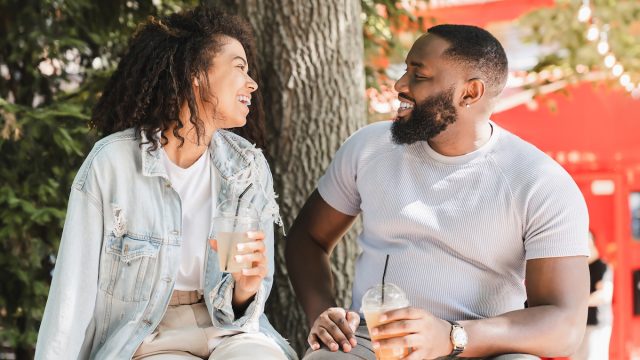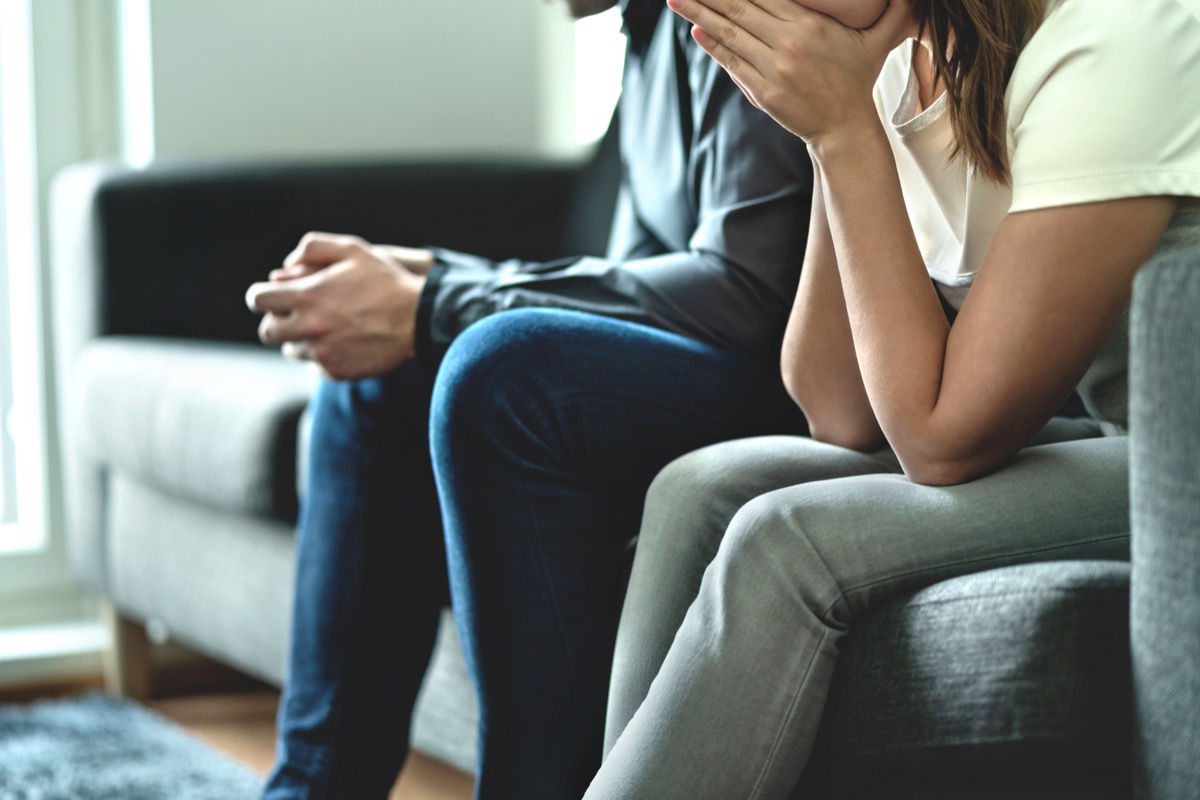49 Percent of You Have Fallen in Love With Someone You Weren’t Initially Attracted To, New Study Says

Throughout your dating history, you’ve probably had several first dates you’ve felt “meh” about. Maybe, you cut things off after that first meeting, or the other person felt similarly mismatched and ghosted. However, if you pushed on with date number two, you may have noticed your feelings change after spending more time together. While you might not have instantly fallen in love, you may have experienced increased empathy, understanding, and closeness. And according to a new study, that could be a solid foundation for a strong relationship. Read on to discover what that survey found, plus, a psychologist’s thought’s on the topic.
READ THIS NEXT: The Top 5 Signs You Found the Love of Your Life, According to Relationship Experts.
A recent study discovered something interesting about initial attraction.

Each year, Match conducts a Singles in America study to learn the latest dating trends and realities. The study covers everything from the types of dates people prefer (this year, it found that 84 percent of singles say they favor casual dates over dinner and wine) to how open they are to a long-distance relationship (53 percent of people said they were this year, compared to 34 percent last year).
One of the survey’s most interesting findings was the flexibility of people’s responses to initial attraction. According to the study, 49 percent of people have fallen in love with someone they weren’t initially attracted to. That’s up from 38 percent over the last decade.
First impressions depend on various factors.

According to David Tzall, PsyD, a licensed psychologist based in Brooklyn, Match’s findings aren’t unexpected. “First impressions are somewhat of a mixed bag,” he says. “We often make quick, imprecise impressions of someone based on many different factors.”
Oftentimes, unconscious bias comes into play, some of which are positive and some negative. “We may have positive first impressions because of something external, such as how someone dresses or the color of their hair, and we may have negative impressions for those same reasons,” he adds. “There is a name for this, and it is confirmation bias, which is the tendency to search for, interpret, favor, and recall information in a way that confirms or supports our prior attitudes or value.”
Interestingly, Tzall notes that these first impressions can be long-lasting and difficult to reverse, especially when they skew negative.
READ THIS NEXT: 5 Body Language Signs That Mean Someone Is Attracted to You, According to Therapists.
Attraction can grow and shrink.

So, can love grow? Tzall says yes. (And get this: he also says it can shrink, too.)
“Attraction can grow for so many reasons, and it is best to be open to any experience as we never know what we are missing out on,” Tzall says. “Attraction can grow after the person sees how you treat your family, or how you speak about your passions, or when you comfort them when they are stressed.” The more connected you become, the more attraction can increase, in both the emotional and physical realms.
Do this to increase attraction.

If you meet someone you’re interested in but aren’t quite attracted to, there are a few things you can do to boost closeness.
First, Tzall suggests talking openly and deeply. “There may be a tendency to speak more superficially at the beginning of the relationship because you’re both feeling out one another and afraid to be vulnerable,” he says. “The quicker you develop a back-and-forth rapport, the more likely your attraction will hasten.”
While you do this, you should also plan dates outside of the house with experiences that are new to you both. Tzall explains that this allows you to do something novel together, which can build memories and attraction. “It also throws the other person off their guard, and any walls they have built will crumble faster,” he says.
For more dating advice delivered straight to your inbox, sign up for our daily newsletter.
Know when to cut things off.

While you want to give a potential partner a chance, you don’t want to waste your time on a relationship that simply isn’t going anywhere. Tzall says three to five dates should be enough to either grow attraction or establish that it’ll never arise.
“The first couple of dates may be filled with unease or anxiety, and you may not be experiencing the real person,” he says. “By the third or fourth date, you’re more comfortable and able to make a decision based on emotions and rational thought rather than an impulsive one solely driven by emotions.” Obviously, this doesn’t apply if the person shows major red flags on the first date. In that case, give them the boot immediately.
If you’re still not feeling things after date five, you might want to cut your losses. “Not every relationship is going to work and not every couple will have an organic chemistry and attraction,” Tzall says. “While this can build over time, it’s important to know that more relationships will not work out than do and it is healthy to walk away when you feel like there is no compatibility.”